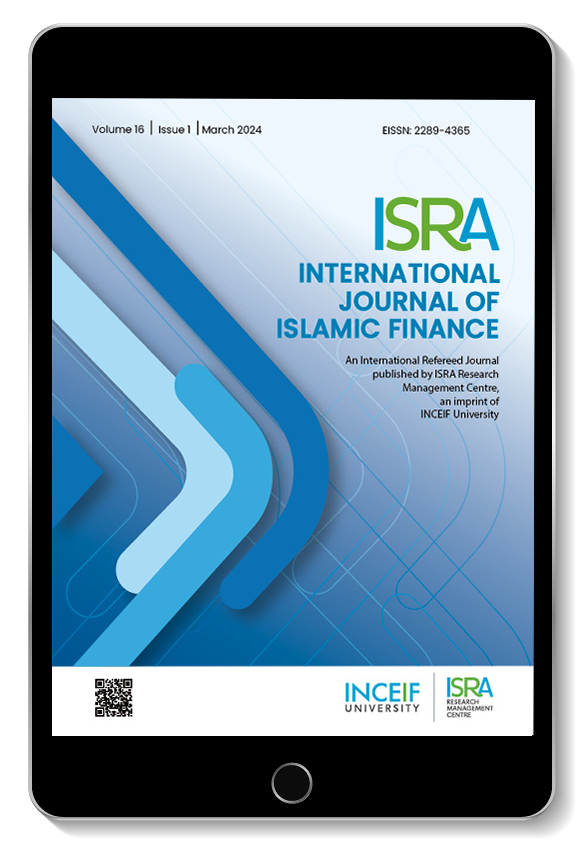Objective Performance Evaluation of the Islamic Banking Services Industry: Evidence from Pakistan
IF 2.8
Q2 BUSINESS, FINANCE
引用次数: 1
Abstract
Purpose — The study documents the performance of the Islamic banking services industry (IBSI) in light of the Islamic finance objectives, notably financial stability, equitable distribution of wealth, and social responsibility. Design/Methodology/Approach — After drawing the performance evaluation framework based on the objectives, the research conducts a balance sheet analysis of the IBSI in Pakistan for 32 quarters (2013Q4–2021Q3). The analysis examines sources and uses of funds by looking at the application of financial contracts and sectoral distribution of financing. Objectively classified data trends are reported through graphs. Findings — Findings suggest that the domestic IBSI has shown progress in achieving primary and intermediate objectives, including commercial performance, contribution to equitable wealth distribution, and financial stability. However, the industry’s in-practice business models lack any significant contribution to the social sector, which represents a more advanced objective. Originality/Value — The contributions to the literature include development of a performance evaluation framework based on Islamic finance objectives, and documentation of findings on the IBSI’s achievements in Pakistan. Research Implications — The study recommends that regulators develop a legal framework for business models of the IBSI. It also recommends that managers of domestic Islamic banks include the social sector as well as agricultural and rural areas in financing and investment portfolios. Article Classification — Research paper伊斯兰银行服务业的客观绩效评价:来自巴基斯坦的证据
目的-本研究根据伊斯兰金融目标,特别是金融稳定、财富公平分配和社会责任,记录了伊斯兰银行服务业(IBSI)的表现。设计/方法/方法-在根据目标绘制绩效评估框架后,该研究对巴基斯坦的IBSI进行了32个季度(2013Q4-2021Q3)的资产负债表分析。该分析通过考察财政合同的适用情况和资金的部门分配情况,审查资金的来源和用途。通过图形报告客观分类的数据趋势。调查结果-调查结果表明,国内IBSI在实现主要和中间目标方面取得了进展,包括商业绩效、对公平财富分配的贡献和金融稳定。然而,该行业的实际商业模式缺乏对社会部门的重大贡献,而社会部门代表着一个更高级的目标。原创性/价值-对文献的贡献包括基于伊斯兰金融目标的绩效评估框架的发展,以及对IBSI在巴基斯坦取得的成就的调查结果的记录。研究意义-该研究建议监管机构为IBSI的商业模式制定法律框架。它还建议国内伊斯兰银行的管理人员将社会部门以及农业和农村地区纳入融资和投资组合。文章分类-研究论文
本文章由计算机程序翻译,如有差异,请以英文原文为准。
求助全文
约1分钟内获得全文
求助全文
来源期刊

ISRA International Journal of Islamic Finance
BUSINESS, FINANCE-
CiteScore
3.40
自引率
17.40%
发文量
18
审稿时长
20 weeks
期刊介绍:
It is the aspiration of the editorial committee that IJIF achieves the highest rank in quality and substance. It is thus our aim that the journal be carried in the Thompson Reuters’ ISI and Scopus databases. By ensuring high standards in articles published in Islamic finance we ensure that further innovation and research is carried out and promoted in the Islamic finance industry and academia. IJIF publishes 2 issues per annum.
 求助内容:
求助内容: 应助结果提醒方式:
应助结果提醒方式:


